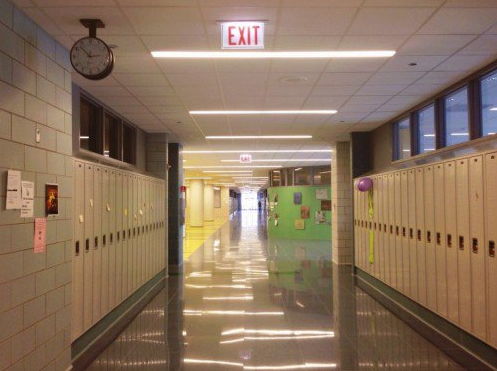This week, Gov. Dennis Daugaard of South Dakota vetoed a bill that would have required students in public schools to use bathrooms and locker rooms based on their biological sex at birth. South Dakota would have been the first state to pass such legislation, pushing back on guidance from the Obama administration requiring schools to allow transgender students access to facilities associated with their gender identity.
Proponents of the bill argued it was needed to protect all students’ privacy; opponents, including the ACLU and Human Rights Watch, argued the bill was state sponsored discrimination. This struggle in South Dakota, and in other parts of the nation, certainly centers on what constitutes discrimination, but it has substantial implications for local control of schools.
In a statement on his veto, Daugaard explained his concern:
Local school districts can, and have, made necessary restroom and locker room accommodations that serve the best interests of all students, regardless of biological sex or gender identity. …Preserving local control is particularly important because this bill would place every school district in the difficult position of following state law while knowing it openly invites federal litigation… This law will create a certain liability for school districts and the state in an area where no such liability exists today.
The threat of federal litigation hangs heavy over such legislation, in South Dakota and all other states. The Obama administration’s interpretation of Title IX holds that restricting access to bathrooms, locker rooms, shower and other facilities for transgender students qualifies as illegal discrimination on the basis of sex. According to a brief filed in 2015 by the Department of Justice, such access must be based on a person’s gender identity. The US Department of Education’s Office of Civil Rights (OCR) is ready and willing to enforce the administration’s view. This past December, Township High School District 211 in Illinois caved in the face of an OCR investigation that found its extensive efforts to accommodate a transgender student’s rights insufficient.
The administration’s interpretation of Title XI is clear, but the constitutional issues on transgender rights are not settled. In fact, any contest over these issues seems bound for a long and involved battle in the courts. If such a court battle is unavoidable, then let’s have it. Individuals’ rights to privacy and to gender nonconformity do come into friction in public bathrooms, and it only intensifies with the combination of minors, locker rooms and shower facilities found in public schools across the nation. It is far from clear what the appropriate balance of those rights is, but without a willing opposition, the administration is free to keep its heavy thumb on the scale.
Source: Nat Malkus, http://www.aei.org
 Listen Online
Listen Online Watch Online
Watch Online Find a Station in Your Area
Find a Station in Your Area










 Listen Now
Listen Now Watch Online
Watch Online
